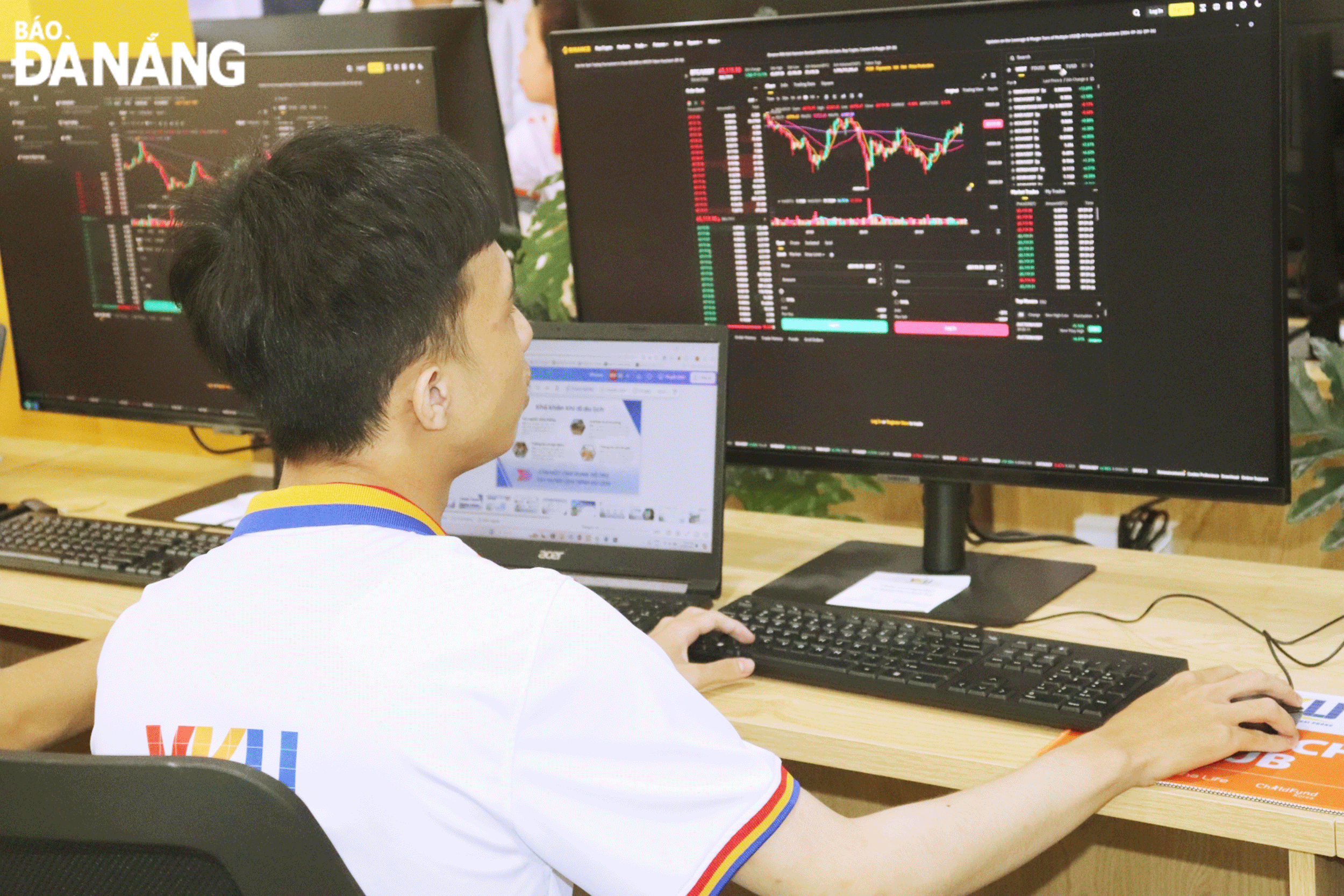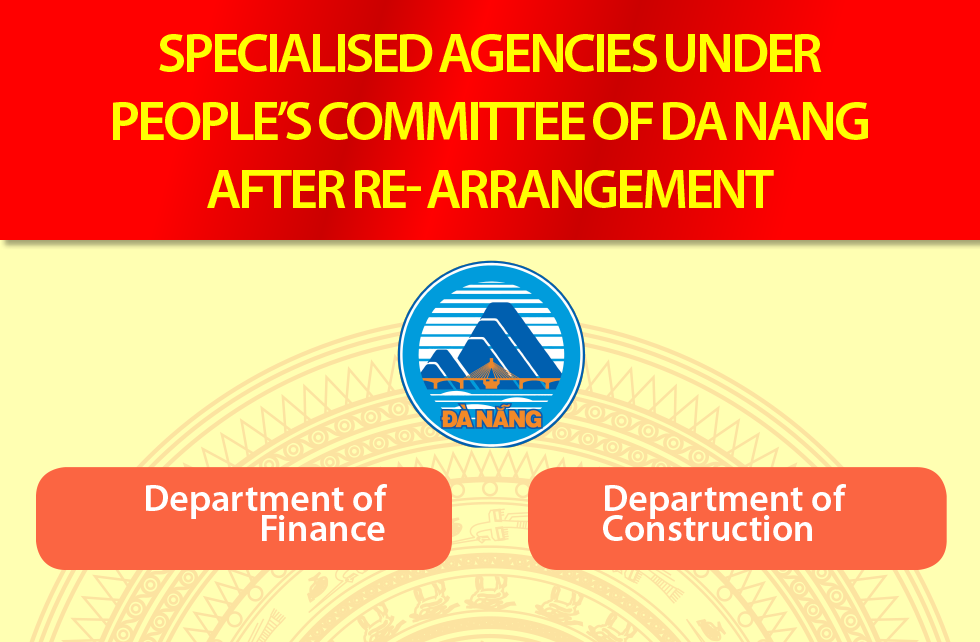Da Nang prepares human resources to take lead in fintech market
Implementing Conclusion No. 79-KL/TW of the Politburo on continuing to implement Resolution No. 43-NQ/TW of the Politburo (12th tenure) on developing Da Nang by 2030, with a vision towards 2045, the member schools of the University of Da Nang - UD have gradually deployed training in financial technology (fintech), aiming to provide labour for the market when the city builds a pilot free trade zone and a regional-scale international financial centre.
 |
| Students experience learning at the Centre for Training, Research and Innovation - VKU Fintech Hub, Viet Nam - Korea University of Information and Communication Technology. Photo: NGOC HA |
Taking the lead in the financial technology market
According to Dr. Tran The Son, the Vice President of the Viet Nam - Korea University of Information and Communication Technology -VKU, Viet Nam is a country with potential for fintech development. The rate of internet usage among people is high (accounting 80% of the total population), and the rate of smartphone usage is similar (84%, forecast to approach 100% in the short term).
E-commerce in Viet Nam is growing strongly. In addition, cashless payment methods are being encouraged. Many Vietnamese people are now using e-wallets. QR codes have become an alternative payment method to cash, especially after COVID-19, cashless payments have developed rapidly.
The number of startups in the fintech sector is gradually increasing, creating the initial foundation for the Vietnamese fintech ecosystem, providing a variety of services for locals and businesses: digital banking (neobank), digital lending, digital payment (accounting for the highest proportion of e-wallets (Momo, VNPay, ViettelPay, ZaloPay, ShopeePay, SePay), or investing in digital asset management, digital insurance technology (2 - 3%). Following the trend, fintech in Viet Nam still has a lot of room to develop.
“The fintech industry in Viet Nam has been continuously growing in transaction value of the entire fintech market in the 3 years of 2021 - 2023, reaching US$27.2 billion and is expected to reach about US$31.6 billion in 2024. The total investment in the Vietnamese fintech market in 2022 was US$138 million, and is expected to continue to increase in 2024,” said Dr. Tran The Son.
Sharing the same view, Assoc.Prof., Dr. Le Van Huy, the Principal of the Da Nang University of Economics, acknowledged that although this is a new field in Viet Nam compared to some countries in the region such as Singapore and Malaysia, it has a great demand for human resources, requiring both financial and banking knowledge and the ability to apply Industry 4.0 technology. Anticipating market trends, the Da Nang University of Economics will soon open a financial technology (fintech) major from 2022.
The financial technology bachelor’s training programme provides human resources with professional qualifications in the field of financial technology, to meet the needs of organisations in the context of the digital age.
Through the training programme, students are knowledgeable about new technologies in the financial field, have the ability to innovate and the skills to create innovation in financial activities in the context of the development of the digital economy and the 4.0 industrial revolution.
“The first enrollment courses of the school’s fintech major all met their enrollment targets with a fairly high input quality. The high number of applications shows the convergence of supply and demand in the digital economic development trend,” Assoc. Prof., Dr. Le Van Huy shared.
After the University of Economics, the Viet Nam - Korea University of Information Technology and Communications, plans to open a financial technology major in 2025. Before officially opening the financial technology major, the school has been training majors and organically related majors such as e-commerce, digital financial management, and digital marketing. These majors are all related to financial technology, most clearly the processing of financial transactions.
Infrastructure and human resources investment
On September 30, the national government issued Resolution No. 169/NQ-CP promulgating the action programme to implement Conclusion No. 79-KL/TW of the Politburo on continuing to implement Resolution No. 43-NQ/TW of the Politburo.
Accordingly, the action programme sets out the tasks of training high-quality human resources for the semiconductor industry and other high-tech industries, converting the Da Nang Industrial Park into the An Don International Financial District.
To prepare for training in financial technology and other high-tech industries, member universities promote effective coordination between higher education institutions, organisations and enterprises.
In August 2024, the Military Commercial JSC (MB) inaugurated and handed over the Digital Innovation Space (DUE-MB Digital Hub) to the Da Nang University of Economics, according to the cooperation agreement signed by the two parties earlier. The DUE-MB Digital Hub is designed to simulate a digital bank, equipped with modern screens and tablets installed with Bee Class software and educational platforms developed by MB, serving digital experiences, focusing on transferring knowledge of digital banking and fintech, according to experimental models.
Also in September, the Viet Nam - Korea University of Information and Communication Technology inaugurated the ‘Centre for Training, Research and Innovation - VKU Fintech Hub’. This is a large-scale project, associated with the Innovation Centre under the ODA project of the South Korean government (a scale of 1,500m2) being implemented at VKU (sponsored by Hanwha Life Group of Korea and Chilfund Korea).
‘Viet Nam has an abundant labour force, but the human resources that meet the high requirements of the fintech industry are still quite limited. One of the main reasons is the lack of interdisciplinary training programmes at higher education institutions.
Therefore, it is necessary to train fintech experts who are capable of developing innovative services of international stature, based on information and communication technology (ICT), especially interdisciplinary human resources - those who have in-depth knowledge of IT, understanding of finance - banking and at the same time being fluent in foreign languages’, Assoc. Prof., Dr. Huynh Cong Phap, Rector of the Viet Nam - Korea University of Information and Communication Technology, shared.
Reporting by NGOC HA - Translating by A.THU








